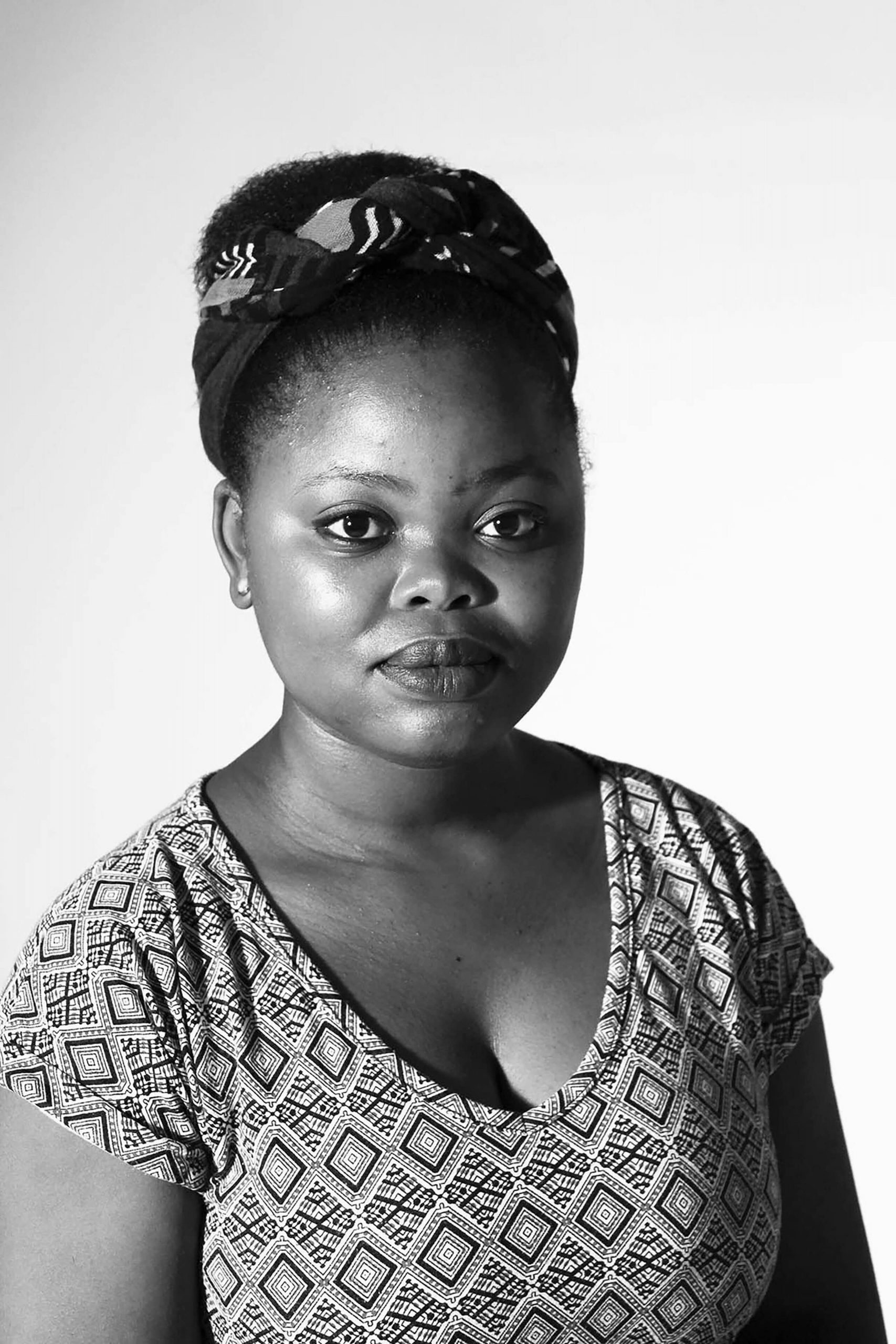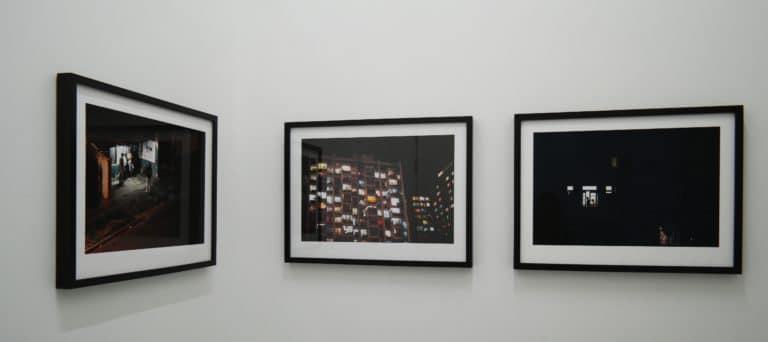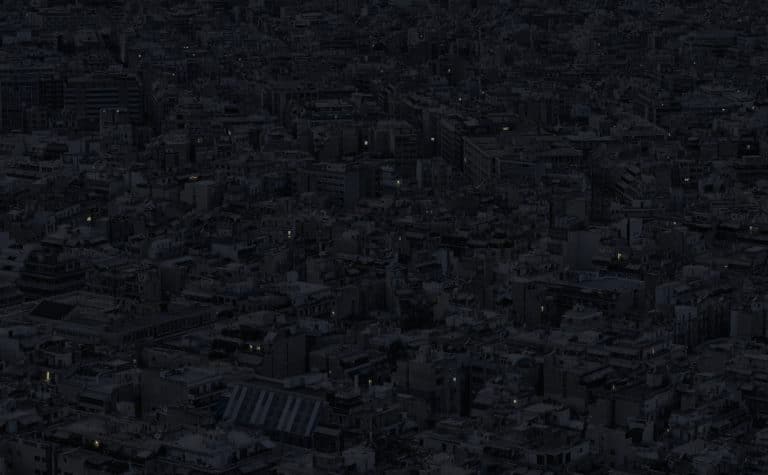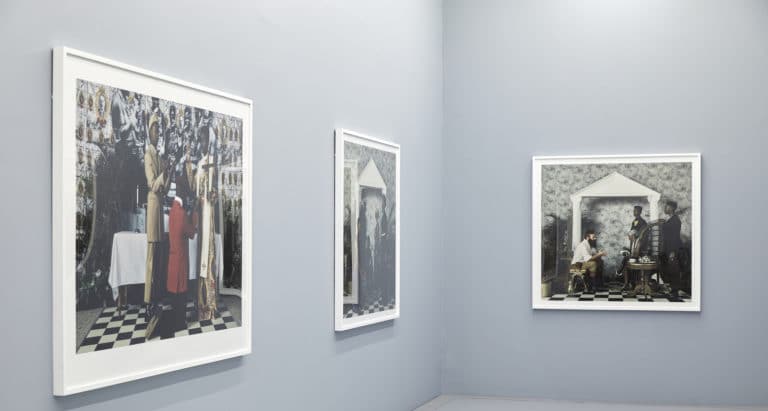Nobukho Nqaba was born in Butterworth located in the Eastern Cape, South Africa. At the age six, she and her family moved to Grabouw in the Western Cape and later attended Luhlaza High School in Cape Town.
She is a graduate of the Michaelis School of Fine Art, University of Cape Town (UCT) where she majored in photography and was mentored by Svea Josephy and Jean Brundrit (2012). In 2012, she was awarded the Tierney Fellowship and was the recipient of reGeneration3, a photography focused initiative by the Musee de l’Elysee. Nqaba holds a Post Graduate Certificate in Education Visual Art and Theory from the UCT (2013). She has embarked on several teaching endeavours through her role as Visual Art and Digital Photography Educator at the Peter Clarke Art Centre. Nqaba is currently a Lecturer of Photography at the Red & Yellow Creative School of Business.
Nqaba’s work explores the precariousness of home and opportunity. Using checkered plastic bags commonly known as China bags, plain grey blankets, and worn overalls, she points to the fragility, impermanence and inner resolve necessitated by circumstance. Nqaba’s work reflects on personal memories of growing up in an informal settlement in
Grabouw and the complexities of migration and labour.
In Nqaba’s Umaskhenke the series, she uses the China bag as a symbol for migration. Unomgcana or Umaskhenkethe is the Xhosa word for the plastic mesh bag, which is made in China. Unomgcana means ‘the one with lines’ and Umaskhenkethe means ‘the traveller’. In South Africa, the bag is more commonly known as China bags, Zimbabwe bags, Khumbulekhaya bags or Mashangaan bag. These bags are ubiquitous and go by many names: the ‘Ghana must go home’ bag in Nigeria, Bangladeshi bag in the UK, Turkish bag in Germany, Mexican bag in the US and Guyanese Samsonite in the Caribbean. These alienating names reveal something of the anxiety expressed towards the carriers of these bags in the communities they relocate to.
These bags have become global symbols of migration – not only across borders but also within countries. They are objects that carry a home and act as a means of survival for one who does not have much. The bag is a personal reminder of Nqaba’s own migration within South Africa. She has experienced many of the challenges of a migrant, and it took her a long time to adjust to life in the places that she has moved to.
Nqaba has exhibited widely including at the SOLAR Festival (Brazil: 2018); FITE Festival of Textiles: Clermont Ferrand (France: 2018); Africa Africa (Milan, Italy: 2018); GETOXOPHOTO (Spain: 2017); China Afrika (Germany: 2017); Also Known As Africa: Contemporary Art and Design Fair (France: 2016); Making & Unmaking: An exhibition at the Camden Art Centre (U.K.: 2016); reGeneration3 (UK, USA, Mexico and Switzerland: 2015-16); Designing Africa 3.0 (Spain: 2016), LagosPhoto Festival (Nigeria: 2015) and Against Time, Bamako Encounters (Bamako, Mali: 2015).
Nobukho Nqaba’s exhibition titled, Izicwangciso Zezethu… (We Make Plans) is currently on show at Zeitz MOCAA until October 2019.




